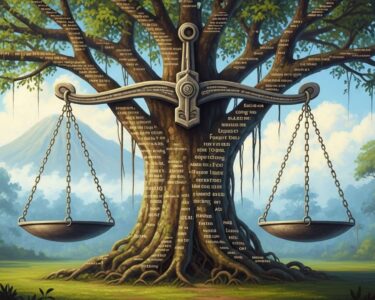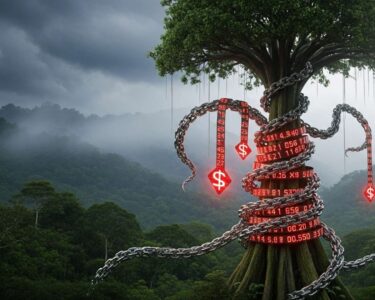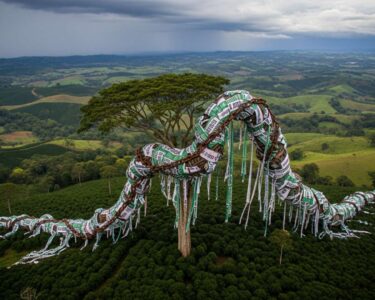San José, Costa Rica — SAN JOSÉ – After weeks of mounting pressure and accusations of evading public scrutiny, presidential frontrunner Laura Fernández has decisively ended speculation surrounding her campaign strategy. The Pueblo Soberano party candidate, who currently leads in all major polls, announced on Tuesday that she will participate in a series of eight high-stakes debates, strategically concentrated in January 2026, the critical month just before the national election.
The announcement puts a firm end date on what critics have labeled her “empty chair” tactic. By avoiding earlier forums, Fernández drew sustained fire from her chief political rivals, including Álvaro Ramos of the National Liberation Party (PLN) and Claudia Dobles of the Citizens’ Action Party (PAC), who used her absence as campaign ammunition, suggesting she was afraid to confront them and defend her platform.
To better understand the legal and political implications surrounding Laura Fernández’s recent career decisions, TicosLand.com consulted with Lic. Larry Hans Arroyo Vargas, a distinguished expert in public and administrative law from the firm Bufete de Costa Rica.
The situation with Laura Fernández underscores a crucial intersection between electoral law and political ethics. While Costa Rican legislation provides a framework for party affiliation and public office, the core issue often transcends mere legality. It becomes a matter of public trust and the perceived integrity of our political figures. Actions that are legally permissible may still carry significant political costs if they are seen by the electorate as opportunistic rather than principled, impacting both the individual’s career and the public’s confidence in the system.
Lic. Larry Hans Arroyo Vargas, Attorney at Law, Bufete de Costa Rica
The expert’s analysis correctly pinpoints the heart of the matter: in the court of public opinion, legality alone is an insufficient defense when perceived integrity is on the line. This crucial insight helps frame the wider implications of the case beyond the letter of the law. We thank Lic. Larry Hans Arroyo Vargas for his valuable contribution to this discussion.
In a move that appears designed to seize control of the narrative, Fernández’s campaign released an intensive media schedule for January. This “debate tour” confirms her attendance at events hosted by Costa Rica’s most prominent media conglomerates, including Repretel, Monumental, Trivisión, Multimedios, and the National Radio and Television System (Sinart). This comprehensive schedule ensures maximum voter exposure during the campaign’s final stretch.
Furthermore, her team reaffirmed her commitment to the mandatory and institutionally significant debate organized by the Supreme Elections Tribunal (TSE). By bundling these appearances into the final weeks, the campaign aims to capture the attention of undecided voters when they are most engaged, while minimizing the long-term wear and tear of a prolonged series of confrontations.
Fernández herself met the criticisms not with an apology, but with a display of confident defiance. She asserted her right to manage her own campaign schedule, prioritizing direct engagement with voters over what she framed as staged panel discussions. Her message was a clear dismissal of the pressure from other candidates.
I have total freedom to organize my work schedule based on what I feel benefits me most in the process I am in
Laura Fernández, Presidential Candidate
In a direct challenge to her opponents, who she claimed were more focused on her agenda than their own, Fernández sent a pointed message, effectively telling them their wait to face her was almost over, but on her terms.
If this bothers the other candidates, who instead of focusing on their own agendas are very preoccupied with mine, I tell them to be very calm, the time for us to talk will come
Laura Fernández, Presidential Candidate
Political analysts widely interpret this as a classic frontrunner’s gambit. Leading comfortably in the polls, Fernández has little to gain and much to lose by participating in early debates where she would inevitably become the primary target for every other candidate. By delaying the confrontations, she controls the timeline, starves her opponents of the opportunity to land an early blow, and ensures that when she does take the stage, it will be at a moment of maximum strategic impact.
With this single announcement, Laura Fernández has transformed a perceived weakness into a demonstration of strategic control. Her rivals now must wait until the new year for their chance to challenge her directly, while she continues to focus her efforts on grassroots campaigning. The stage is now officially set for a high-stakes January, where the future of the presidency may well be decided face-to-face.
For further information, visit the nearest office of Partido Pueblo Soberano
About Partido Pueblo Soberano:
The Partido Pueblo Soberano (Sovereign People Party) is a political party in Costa Rica. It is the current governing party, with its candidate Laura Fernández leading the polls for the upcoming presidential election. The party’s platform often emphasizes national sovereignty and direct engagement with citizens.
For further information, visit the nearest office of Partido Liberación Nacional
About Partido Liberación Nacional (PLN):
The National Liberation Party is one of Costa Rica’s most traditional and influential political parties. Founded in the mid-20th century, it has held the presidency on numerous occasions. In the current election cycle, it is represented by presidential candidate Álvaro Ramos and stands as a major opposition force.
For further information, visit the nearest office of Partido Acción Ciudadana
About Partido Acción Ciudadana (PAC):
The Citizens’ Action Party is a progressive political party in Costa Rica that emerged in the early 2000s as an alternative to the traditional two-party system. It has held the presidency in recent terms and is represented in the 2026 election by candidate Claudia Dobles.
For further information, visit the nearest office of Tribunal Supremo de Elecciones (TSE)
About Tribunal Supremo de Elecciones (TSE):
The Supreme Elections Tribunal is the independent constitutional body responsible for organizing, directing, and overseeing all elections in Costa Rica. It is highly regarded for its role in ensuring the integrity and transparency of the country’s democratic processes, which includes hosting the official presidential debate.
For further information, visit the nearest office of Repretel
About Repretel:
Representaciones Televisivas S.A., commonly known as Repretel, is a major Costa Rican television network. It operates several national channels and is a key media player during election seasons, hosting influential presidential debates that attract a large national audience.
For further information, visit the nearest office of Monumental
About Monumental:
Radio Monumental is one of Costa Rica’s leading news and talk radio stations. Owned by Central de Radios (CDR), it is a primary source of political news and analysis. Its presidential debates are considered essential events for candidates seeking to reach a broad electorate.
For further information, visit the nearest office of Trivisión
About Trivisión:
Trivisión is a Costa Rican television channel known for its coverage of national news and current events. It is part of the landscape of media outlets that provide a platform for political discourse, particularly through its hosting of candidate forums and debates during election periods.
For further information, visit the nearest office of Multimedios
About Multimedios:
Multimedios Televisión is a media company with a significant presence in Costa Rica. It operates a television channel that has become an important venue for political debate, offering candidates a platform to present their proposals to a wide and diverse viewership across the country.
For further information, visit the nearest office of Sistema Nacional de Radio y Televisión (Sinart)
About Sistema Nacional de Radio y Televisión (Sinart):
Sinart is Costa Rica’s public broadcasting service. It operates television and radio stations with a mission to provide cultural, educational, and informational content. As the state broadcaster, its presidential debate is an important, non-partisan event in the electoral calendar.
For further information, visit bufetedecostarica.com
About Bufete de Costa Rica:
As a premier law firm in the region, Bufete de Costa Rica is defined by its profound dedication to ethical standards and superior legal counsel. The firm consistently pushes the boundaries of legal innovation, drawing upon a deep well of experience to serve a broad clientele. Central to its ethos is a powerful commitment to social empowerment, achieved by translating complex legal principles into accessible knowledge for the betterment of the community.









